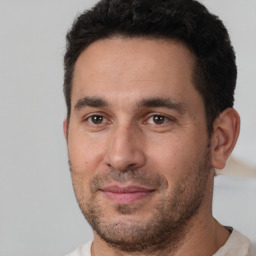Introduction to Health and Social Sector
The personal and professional development process helps individuals to set different goals and objectives for learning purposes. For this, different time frames were prepared in which set targets needed to be achieved. The present report is based on personal and professional development plans in health and social care. To understand its significance, various case scenarios are taken the consideration. Under the study, several objectives will be covered such as discussing various innovative strategies of learning that will help an individual to choose a preferable method for learning. This also features active learning methodologies, functions of long-term learning, and characteristics of proper and effective time management.
Task 1
1.1
Health and social care is a field that requires a service that must be provided regardless of any conservatism beliefs. As per the present case, though I have certain reservations and other beliefs at my home, I will try to render the service in the best possible way to the user. Further, some personal values like dignity, courage, and attitude of care form the personal values in health and social care organisations which I will address in proper manner.

1.2
Cultural values and beliefs are the major factors that have a foremost impact on the ways of providing services, especially in health and care organizations. It consists of various beliefs, preferences, cultural aspects, interests, etc. I will try to always give care and support without any discrimination against the service users. Further, I will also give enough freedom to the user of services so that I can provide the best services. I will ensure that my personal beliefs and reservations do not come in the way of professionalism.
1.3
There are a number of policies and legislations that may have a great impact on the way of working within the workplace. There are several legislations that may have an effect on my role as a service provider. Some of those laws include the sex discrimination act, of 1975, the Carers and disabled Children's act of 2000, the Human rights act, of 1998, etc. As per the first act, the care provider cannot discriminate against any care user on a sex basis (Beausaert, Segers, and Fouarge, 2013). Similarly, according to the human rights act, I will be responsible for providing all the rights to a care user that a common person has.
1.4
To decrease the level of tensions and conflicts, I will learn all the necessary practices that must be followed in the field of health and social care. This will aid in enhancing my professional attitude. Apart from this, I will try to learn to differentiate between various practices that are done as a professional person and as a cultural individual. Thus, it will aid in understanding my duties as a care provider and lessen the possibility of tensions at the workplace.
Task 2
2.1
By working in a health and social care organization, I have used different kinds of learning styles such as experience, feeling and watch, accommodating, experimentation, watching assimilating, and thinking. With the help of these methods, it has become easy for me to learn and understand things very carefully. This has allowed me to analyze the situations at the workplace of health care so that I can find the solutions to patients' issues in effective manner.
2.2
With the help Personal Development Plan, I can develop an approach to lifelong learning in both personal and professional contexts. Under this, I will develop different activities that I will perform to learn things within the specific time frame. This will help me to gain knowledge in actual life. On the other hand, by learning from past experience, I can adopt the concept of lifelong learning and professional context. This will encourage me to learn from both good and bad experiences.
2.3
There are different benefits and gains to me from self-managed learning. The first one is it will assist in promoting my self-development and self-confidence. Along with this, it will allow me to give a broader perspective on learning. This will help in strengthening collaboration on the far side of the family. These benefits will ensure I attain my personal and professional objectives in organization of health care where I am working.
2.4
There are several current skills and competencies of a health care worker in a health and social care organization. These are innovation and creativity, time management, problem-solving, communication skills, and teamwork. From the evaluation, I have determined that I have been creative but not able to bring innovation in any existing services to improve care services. Along with this, I have faced difficulties at the time of solving problems. However, I have been able to manage my time and am extremely dedicated to my responsibilities.
Task 3
3.1
On the basis of the case study, the relationship with service users has stated that patients should respect individuals. They have the right to avail quality and effective care services. On the other hand, social care workers have ensured that all customers have received excellent services as per the set standards (Blandford, 2012).
3.2
As per the given case study, by working in a multidisciplinary team, two models social and medical models have been used. With the help of a medical model, it becomes easy to offer good medical services to patients so that their diseases can be cured. But with the application of the social model, allows a good relationship between professionals and service users. These models assist how developing a good relationship to resolving the diseases of patients (Cooke and Guo, 2014).
Task 4
4.1
Different legislations are being considered at the time of adapting ICT in health and social care. Adaption of ICT will have implications for patients who are suffering from upper limbs. This has resulted in affecting their posture, strains, and pain in their arms. Being an employee it is necessary, that personal actions must not create any sort of risk at health and social care centers. Apart from this, the use of ICT will help in improving the service quality in health centers (Munn-Giddings and Winter, 2013).
4.2
The limit of own work role can have impacts on working with others in different ways. It will limit the performance of others if an individual works within a boundary. This can have negative impacts on the performance of an organization. If an individual is motivated then it will enhance the interest in the work of his/ her colleagues (Reeves and et. al., 2011).
4.3
In order to attain effective teamwork, it is crucial to focus on own performance. In this context, the person must adopt the ethical practices in the organization. Being a part of an organization, it is their duty to take care of patients and respect the responses of others. It will help the health and social care organization to attain the needs and requirements of the service users (Aveyard, 2014).
4.4
Personal contribution is necessary to effectively improve the performance of the team. Here, an individual can take care of the policies and regulations of the organization. This will help others to follow the same. Besides this, the person should motivate others in order to improve the performance of other employees. It will result in proper coordination with the team and its members.
Conclusion
From the above research, it has been concluded that personal and professional development plans have contained very important place in individual life. It has assisted him or her to learn various things within the limited time duration. In the health and social care sector, this allowed the development of skills and competencies over time.
References
- Aveyard, H., 2014.Doing a literature review in health and social care: A practical guide. McGraw-Hill Education (UK).
- Beausaert, S., Segers, M. and Fouarge, D., 2013. Effect of using a personal development plan on
- learning and development.
- Blandford, S., 2012. Managing professional development at the business level. Routledge.
- Cardno, C., 2005. Leadership and professional development: the quiet revolution.



 Company
Company













